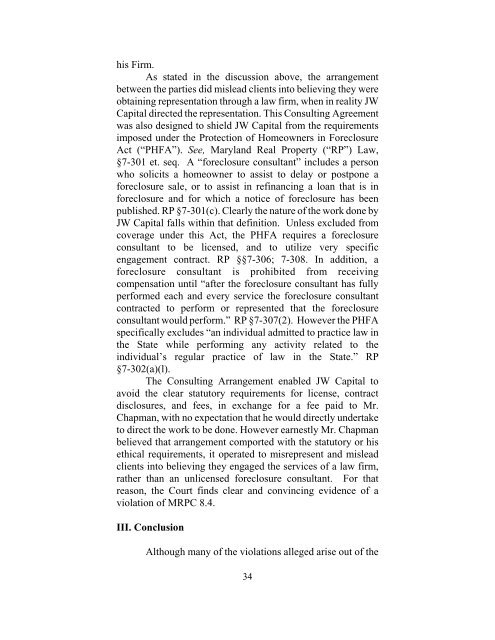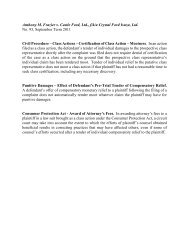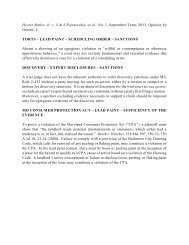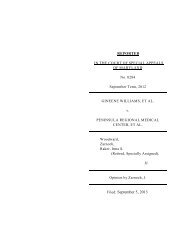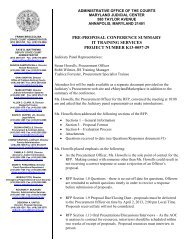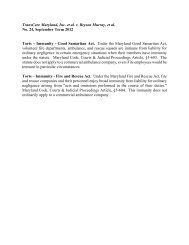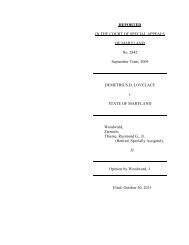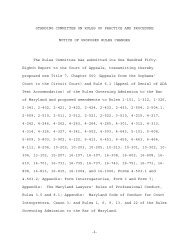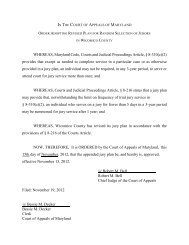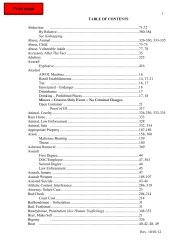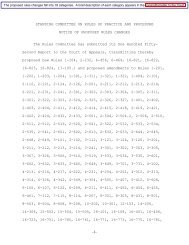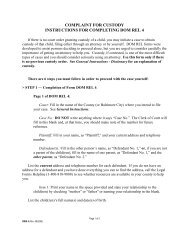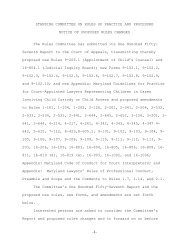44ag/11 - Maryland Courts
44ag/11 - Maryland Courts
44ag/11 - Maryland Courts
You also want an ePaper? Increase the reach of your titles
YUMPU automatically turns print PDFs into web optimized ePapers that Google loves.
his Firm.<br />
As stated in the discussion above, the arrangement<br />
between the parties did mislead clients into believing they were<br />
obtaining representation through a law firm, when in reality JW<br />
Capital directed the representation. This Consulting Agreement<br />
was also designed to shield JW Capital from the requirements<br />
imposed under the Protection of Homeowners in Foreclosure<br />
Act (“PHFA”). See, <strong>Maryland</strong> Real Property (“RP”) Law,<br />
§7-301 et. seq. A “foreclosure consultant” includes a person<br />
who solicits a homeowner to assist to delay or postpone a<br />
foreclosure sale, or to assist in refinancing a loan that is in<br />
foreclosure and for which a notice of foreclosure has been<br />
published. RP §7-301(c). Clearly the nature of the work done by<br />
JW Capital falls within that definition. Unless excluded from<br />
coverage under this Act, the PHFA requires a foreclosure<br />
consultant to be licensed, and to utilize very specific<br />
engagement contract. RP §§7-306; 7-308. In addition, a<br />
foreclosure consultant is prohibited from receiving<br />
compensation until “after the foreclosure consultant has fully<br />
performed each and every service the foreclosure consultant<br />
contracted to perform or represented that the foreclosure<br />
consultant would perform.” RP §7-307(2). However the PHFA<br />
specifically excludes “an individual admitted to practice law in<br />
the State while performing any activity related to the<br />
individual’s regular practice of law in the State.” RP<br />
§7-302(a)(l).<br />
The Consulting Arrangement enabled JW Capital to<br />
avoid the clear statutory requirements for license, contract<br />
disclosures, and fees, in exchange for a fee paid to Mr.<br />
Chapman, with no expectation that he would directly undertake<br />
to direct the work to be done. However earnestly Mr. Chapman<br />
believed that arrangement comported with the statutory or his<br />
ethical requirements, it operated to misrepresent and mislead<br />
clients into believing they engaged the services of a law firm,<br />
rather than an unlicensed foreclosure consultant. For that<br />
reason, the Court finds clear and convincing evidence of a<br />
violation of MRPC 8.4.<br />
III. Conclusion<br />
Although many of the violations alleged arise out of the<br />
34


